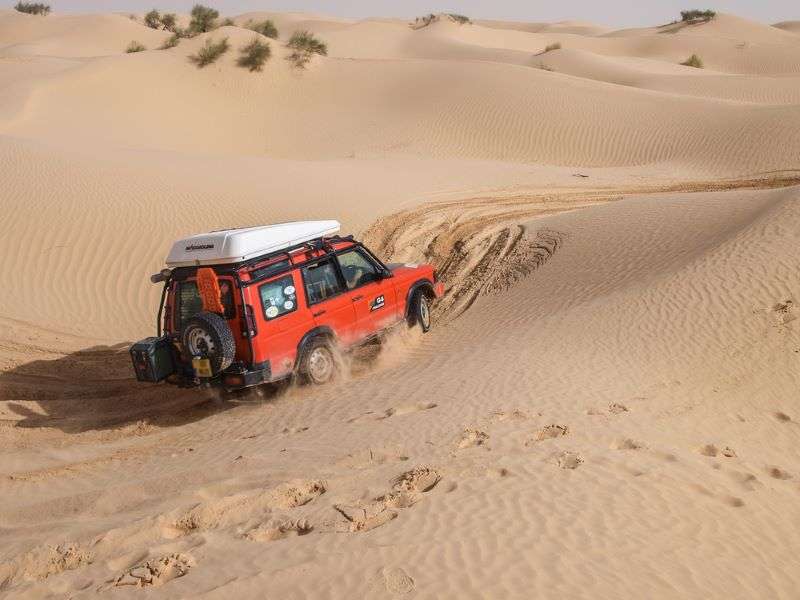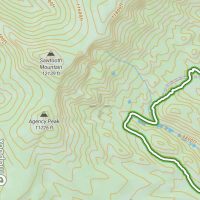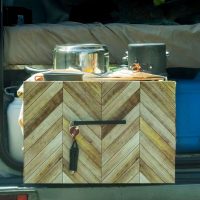Last Updated on April 6, 2023 by Paul S.
You have probably seen a lot of Instagram posts about overlanding or vehicles that are being modded to get ready for a big adventure.
Overlanding is simply traveling by land to destinations you would like to visit but the destinations will typically be far away and take some time to get to. Do not confuse this with a road trip! Overlanding is probably 100 x what you consider a road trip. Where an RV or #vanlife wouldn’t go, an overland vehicle would, and they would stay there self sufficient and love it!
The buzz around overlanding is typically surrounding motor vehicles and those vehicles tend to be 4x4s and SUVs outfitted to support yourself without needing much else from the general public. The popular overlanding posts on social media tend to be about individuals doing multi-year trips in Africa, Europe, or South America.
Table of Contents
What Is Overlanding’s History?
Because overlanding is a general term without much of a documented history there is no one place that overlanding was specifically born from. It has just evolved from different definitions like expeditions, safaris, and other types of trips. One thought is that the term overlanding comes from Australia and loosely describes taking livestock from one point to another typically over long distances. In the outback of Australia, many roads were constructed to allow the interior(outback) to be developed. We will assume that somehow someway this term made it to the overlanders in Australia today that roam the giant open outback.
From there it made its way to overland tours of mostly unexplored territories of Africa. Some could call them expeditions as even up to today the terms are thrown out very loosely.
While now in modern days the invention of the internet and social media has made overlanding a lot easier people still set out on huge trips to explore what is at least new to them!
Overlanding Vehicles
An offroad vehicle is typically recommended because it can go over a lot of terrain, get you out of difficult extreme weather conditions, and get you to remote places quickly. If you think you don’t have the cash for an amazing vehicle you would be surprised by what you can find in some countries and understand that many countries require amazing inspections and maintenance. Anyways it’s not always the best to be in a flashy vehicle driving down a dark road in a country where you don’t speak the language!
One of our recommendations if traveling outside of your country is to look up what types of vehicles that country has and potentially purchase that type of vehicle for your trip. This helps because then you know that there will be repair shops that can service your vehicle and get you the correct parts quickly. In this day and age, anything can be delivered but it’s just the time you will have to wait and the amount of money you will have to pay.
Let’s say you want to drive a Mercedes Benz G Class as your overland vehicle (Don’t, but be just humor me). If you decide to take your G Class down to the southern tip of Argentina to visit the City of Ushuaia you might have some trouble when your G class needs servicing. Imagine trying to get some automotive parts down there!
On the other hand, if you decide to use a Toyota then you might be in better shape. One top selling 4×4 in Latin America and even the world is the Toyota Hilux. This is similar to the Tacoma but just by looks, many things are different but at least you know that there are Toyota representatives in that country to order your parts and you can probably get them a lot quicker.
In many countries, you can even find vehicles online that have been outfitted for overlanding by other adventurers done with their travels. This helps when you need to cross the ocean. In some cases, it’s not worth the pain to bring your vehicle with you but buy one once you get to that country. This helps because then you are driving a vehicle that originated in that country and you know it will be serviceable and you don’t have to worry about customs and licensing a foreign vehicle.
In my 3-month stint in a Mitsubishi Delica in New Zealand, we had purchased this from another traveler and it was all set up for living on the road. When we were done with the vehicle, we sold it to another traveler who was going to use it for more adventures.
Now let us get into the types of vehicles that would be great to overland in each Continent.
Best Overland Vehicle For Africa
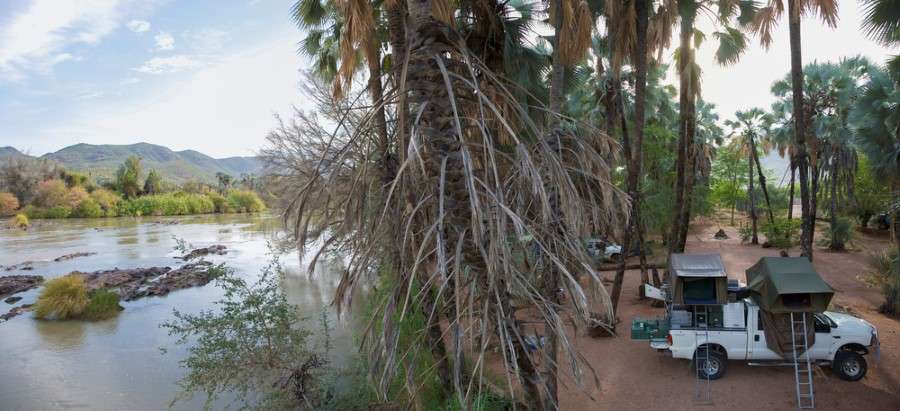
- Land Rover Defender by far one of the more popular vehicles
- Toyota Hilux
- Toyota Landcruiser
Even if you aren’t planning on going to Africa for an overland expedition you should check out some of the rigs on sale on this Facebook group: Facebook/groups/overlanding
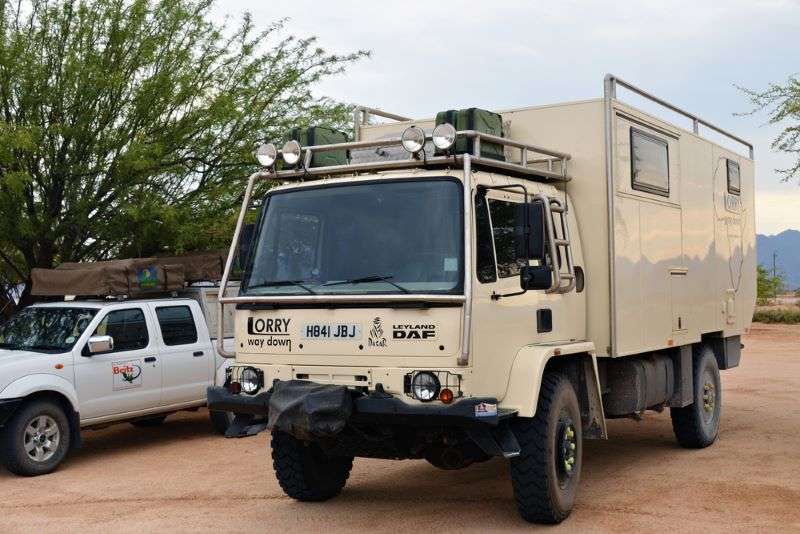
Best Overland Vehicle For Europe
- Mercedes Benz Sprinter (make sure it’s 4×4)
- Volkswagon Syncro
- Land Rover Defender
- Toyota Hilux
- Mitsubishi L200
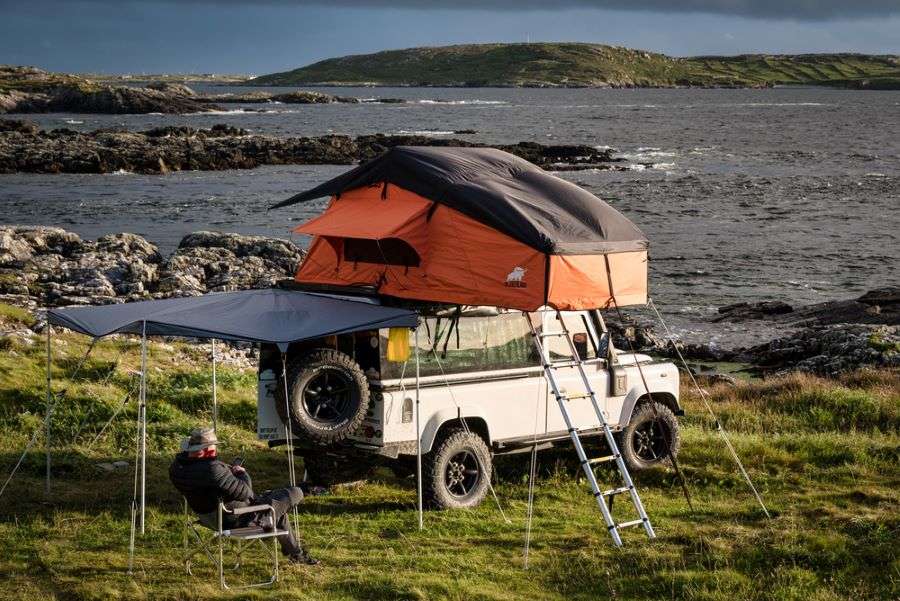
Best Overland Vehicle For Latin America
- Toyota Fortuner
- Toyota Land Cruiser
- Toyota Prado
- Toyota Hilux
- Mitsubishi L200
Jeep Wranglers are getting popular in the major cities as I have witnessed from my travels, but I still wouldn’t recommend using one at this time. But I am sure it has been done quite a lot but servicing and parts could still be difficult.
Parts are everywhere for Toyota so it is a great bet if you want a little peace of mind when taking your rig into an auto shop.
Best Overland Vehicle For USA and Canada
- Toyota 4runner
- Toyota Tacoma
- Jeep Wrangler
- Nissan Xterra
- Subaru Outback
- Subaru Highlander
- Mercedes Sprinter Van
- Ford E-350 with Quigley Conversions
- Ford/Ram/Dodge Trucks will most likely have to outfit it yourself if you choose this route
Best Overland Vehicle For New Zealand/Australia
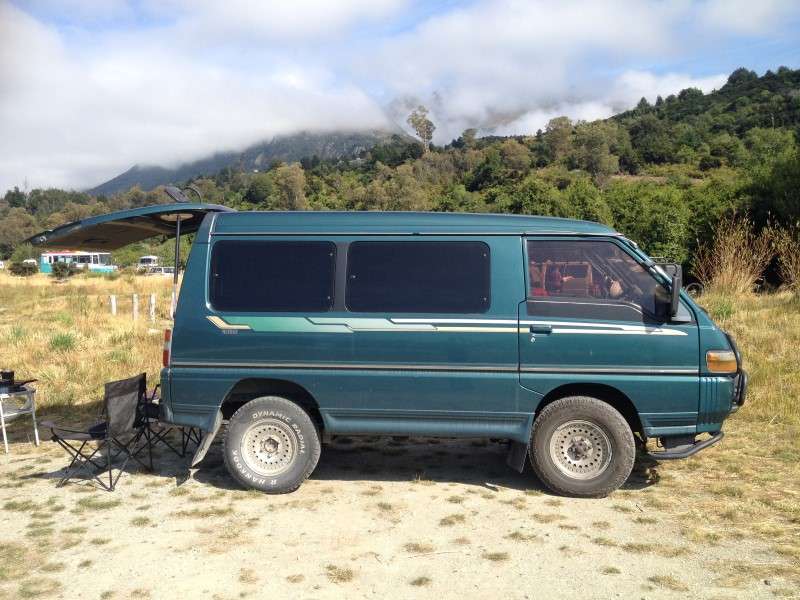
- Mitsubishi Delica
- Subaru Outback
- Toyota Hilux/Surf
- Toyota Land Cruisers
- Toyota Hiace
- Toyota Prado
Difficulties of Overlanding
The difficulties laid out below will vary depending on your location, but overlanding is definitely not a trip to the beach. Here are some of the difficulties you could face:
- Language: Traveling to remote parts of the world does not necessarily mean that you will be able to talk to the local people about what happened to your vehicle or where you need to go. Luckily technology has gotten a lot better, but it will still be tough.
- Road conditions: Great road conditions mean different things in different countries. Dirt and paved roads are going to be totally different from road signage to even have a shoulder to pull over on.
- I was once motorcycling through Vietnam and the pavement disappeared for about 20 feet. I went flying to say the least!
- Driving down through the Baja of Mexico there was a 1-foot drop from the edge of pavement to the desert floor. It made me not want to break down at this section of the road.
- Theft: While not as common as some people think due to the media and the fear people like to buy into, theft does happen. In certain countries, you are the odd man out driving a nice vehicle that is loaded with things inside so if the opportunity arises there could be some theft.
- Emergencies: If emergencies occur in developing countries or when you are in a remote area there is not always going to be help just around the corner. It is very important to be as self-reliant as you can be. Health care varies per location no matter what country you are in.
- Vehicle maintenance/failure: You will be utilizing your overland vehicle a lot!!! Maintenance is inevitable and so is the failure of parts. This must be planned for in your budget
Weather: Once in your vehicle you are subject to the whims of the weather. You can improve your overlander to accommodate for certain weather but that will increase the cost of your trip and there is only so much weatherproofing you can do.
In heat and humidity, this can make it unpleasant for you but can also cause issues with your sleeping equipment. Mold, mildew, and other fun things can grow and thrive if you don’t keep a clean space.
Cleaning: Typically, your overlander will not have a washer and dryer so you will be subject to long durations without washing your clothes unless there is a water source nearby that allows it.
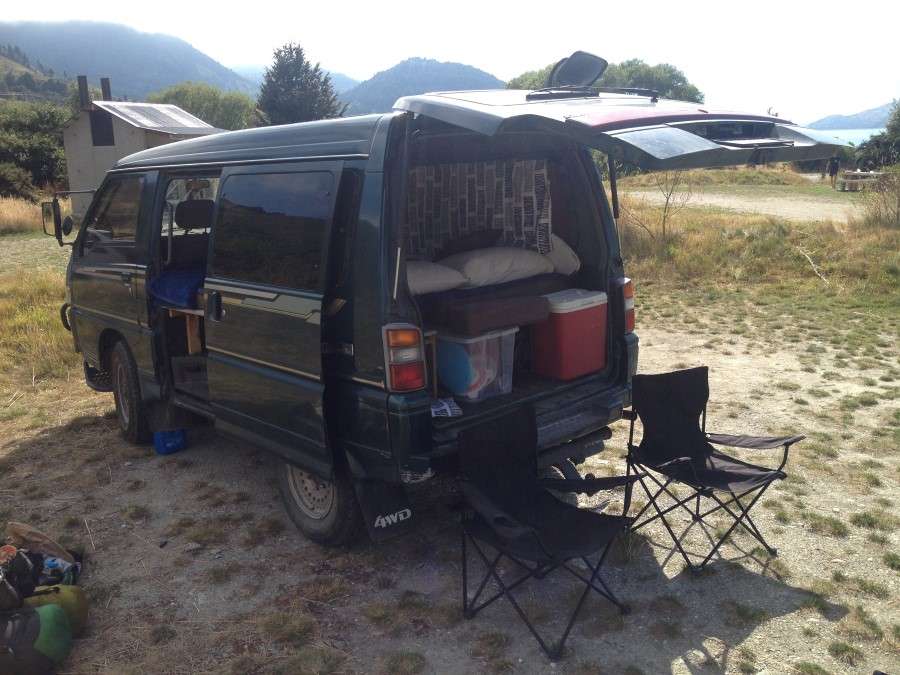
Where to sleep: Every country has different rules but in some areas, it may be illegal to boondock in a national park or in a neighborhood. Boondocking is basically parking anywhere you can to sleep overnight.
In New Zealand, there were certain areas that allowed boondocking and certain areas that didn’t. During the early years of overlanding there, people could sleep wherever they wanted and that became an issue for many reasons. But overall New Zealand is very accommodating to overlanders as it is a great source of tourism for the country.
Eating: Typically, you will have no fridge so if you are away from civilization for a while then you will need to pack more nonperishable foods for the time away. Coolers can help with that a little, but in some countries, ice is not sold in abundance. If you can afford it a portable fridge would be an amazing luxury.
Sleeping: Sometimes you are going to get horrible sleep. Whether it be in a City when you are stocking up or in the woods where there are animals that want to check you and your vehicle out.
Border Crossings: So many countries and always different rules in each one. Researching each step prior to starting your adventure is paramount so you know how to navigate the system.
Border crossing via airlines is not so much of an issue but now you add all of your gear, food, and vehicle and it can become an issue. You will need to have all the correct documents for your vehicle, insurance, and licenses prior to crossing the border. Some countries are easier than others but do your research.
Bathrooms: The world is your toilet. But seriously unless you have a big rig that has a compostable toilet you will forever be in search of the wilderness toilet and shower. For showers at least you can prepare with some type of portable shower system. Remember to use the leave no trace ethics even though you are out in the wild and no one cares where you do your business.
Water: Probably the most important item on your list. You will need to make sure you have enough water when you head to off the map places for you and your crew and always increase the amount in case of emergencies.
After writing all that it seems like I am trying to scare everyone off from overlanding but if you plan correctly most of these difficulties will only be a speed bump on your adventure.
Overland Recovery Gear
Recovery Gear is going to be some of the most important things in your vehicle. You may never use them but if the situation arises they will help your vehicle get out of dangerous situations. Typically recovery gear includes the following:
- Winch
- Snatch Strap
- Tow Strap
- Shovel
- D-Rings
- Tree Strap
- Traction Boards
- Air Compressor
- Tire Patch Kit
The list can go on but eventually, you may run out of room in your vehicle for all this gear. If you can’t have it all you will have to read the terrain and the weather to determine if you want to chance it down that lonely road!
Overlanding Destinations
Some of the most popular overlanding destinations that are still truly adventures are Africa and Central and South America. You will find a lot of great information on these locations and can typically purchase vehicles in these areas so you can avoid having to ship vehicles across oceans or cross many borders.
North America, Australia/NZ, and Europe are great places to go to get your feet wet just because they are more developed and infrastructure and supplies are readily available.
Asia is definitely a growing spot for overlanding but still has a way to go for popularity. Asia still has some vast beautiful areas not explored by many but that could be because of political tensions, difficulty getting visas, and issues with purchasing or bringing vehicles into the various countries.
Conclusion – What Does Overlanding Mean?
Overlanding can mean a lot of different things but I think the easiest way to sum it up is an adventure in a motor vehicle. Whatever the meaning of overlanding to you is it is an amazing journey you will never forget. Just be prepared for what the road has in store for you!
If you are ready for your trip check out our article on some important Overlanding necessities.
Best Off Road GPS Apps
Last Updated on April 9, 2023 by Paul S. We have collected some of the best off road GPS apps out there on the market. The apps can help you…
Overlanding Necessities
Last Updated on March 8, 2023 by Paul S. Overlanding is a difficult undertaking but with prior planning and having the Overlanding necessities you can enjoy your adventure even more? …

